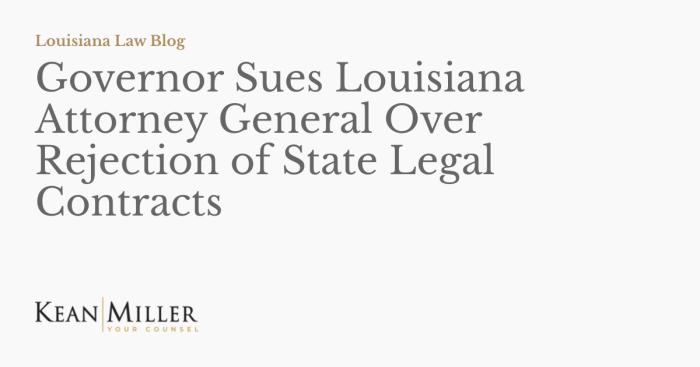Navigating the complexities of Louisiana usufruct law can be challenging, particularly when dealing with property rights and family inheritances. Usufruct, a unique legal concept allowing one party (the usufructuary) to use and enjoy another’s property while the ownership remains with the other (the naked owner), presents a range of scenarios demanding legal expertise. This guide offers an overview of Louisiana usufruct law, the benefits of a free consultation with a Louisiana attorney specializing in property law, and resources to find the right legal representation for your specific needs.
Understanding the nuances of usufruct, including its various types and potential conflicts, is crucial for protecting your interests. This guide explores common usufruct scenarios, clarifies the scope of free legal consultations, and provides a step-by-step process for seeking legal assistance. We’ll also address ethical considerations and best practices for both clients and attorneys involved in these consultations.
Understanding Louisiana Usufruct Law

Louisiana usufruct is a complex but vital aspect of Louisiana’s civil law system, significantly impacting property ownership and inheritance. It allows one person (the usufructuary) to enjoy the use and fruits of another person’s property (the naked owner) without owning the property itself. Understanding its intricacies is crucial for anyone dealing with Louisiana real estate or estate planning.
Legal Definition of Usufruct in Louisiana
Louisiana Civil Code defines usufruct as a real right granted to a person to enjoy the use, fruits, and products of a thing belonging to another, with the obligation of preserving its substance. This means the usufructuary has the right to use the property and benefit from its income (e.g., rent from a building, crops from land), but they cannot damage or diminish the property’s value. The naked owner retains ownership and ultimate control over the property, receiving the property back upon the termination of the usufruct.
Rights and Obligations of a Usufructuary
The usufructuary possesses several rights. They have the right to possess and use the property, to collect its fruits and products, and to make necessary repairs and improvements to maintain the property’s value. However, they also have significant obligations. These include the responsibility to preserve the substance of the property, to pay property taxes and other charges related to its use, and to return the property in the same condition it was received (excluding normal wear and tear). Failure to meet these obligations can lead to legal repercussions.
Comparison of Usufruct with Other Legal Concepts
Usufruct differs from other concepts like ownership and lease agreements. While ownership grants complete control and possession, usufruct grants only the right to use and enjoy. A lease provides temporary possession and use, typically for a specific period, while usufruct can last for a lifetime or a defined period. A trust, while also managing assets for a beneficiary, differs in its structure and legal framework, governed by trust law rather than the Civil Code.
Common Scenarios Involving Usufruct
Usufructs are frequently used in Louisiana in several contexts. A common example is a parent leaving a property to a child, with the parent retaining a usufruct for their lifetime. This allows the parent to continue living on the property while ensuring the child’s eventual ownership. Another scenario is using usufruct in a business context, where a person might have usufruct over equipment or intellectual property. This arrangement allows for the use and profit from the assets without full ownership. Finally, usufruct can be part of a more complex estate plan, used to manage assets for specific beneficiaries over time.
Types of Usufruct and Their Characteristics
| Type of Usufruct | Duration | Creation | Characteristics |
|---|---|---|---|
| Legal Usufruct | Legally defined period (e.g., lifetime of usufructuary) | Established by law | Automatic right granted to certain individuals (e.g., spouse) |
| Conventional Usufruct | Defined by agreement between parties | Established by contract or will | Terms and conditions specified by agreement |
| Usufruct on a Portion of Property | Defined by agreement between parties | Established by contract or will | Usufruct applies only to a specific part of the property |
| Usufruct on Specific Assets | Defined by agreement between parties | Established by contract or will | Usufruct applies to particular assets (e.g., stocks, bonds) |
Free Consultations and Attorney Services

A free consultation with a Louisiana attorney offers a valuable opportunity to discuss your legal concerns and receive preliminary guidance. Understanding the scope and limitations of these consultations is crucial for both the client and the attorney. This section clarifies what to expect during a free consultation and the ethical responsibilities involved.
Scope of a Free Consultation
Typically, a free consultation in Louisiana provides an initial assessment of your legal situation. The attorney will listen to your concerns, ask clarifying questions, and provide a general overview of the relevant laws and potential legal strategies. This initial meeting allows the attorney to determine if they are the right fit for your case and if they can effectively represent you. The attorney may also explain the potential costs and timeline involved in pursuing your case. However, it’s important to remember that this initial assessment is not a substitute for comprehensive legal advice.
Limitations of Free Consultations
Free consultations are limited in scope and duration. Attorneys typically allocate a specific timeframe, often 15-30 minutes, for these initial meetings. During this time, the attorney cannot conduct extensive research, analyze complex legal documents, or provide definitive legal advice. A free consultation is intended to provide a preliminary overview, not a full-fledged legal analysis. The attorney may not be able to offer a specific outcome prediction due to the limited information available during this initial meeting. Furthermore, the attorney’s opinion expressed during a free consultation should not be considered binding legal advice.
Best Practices for Clients Seeking a Free Consultation
To maximize the effectiveness of a free consultation, clients should prepare beforehand. Arriving prepared ensures that the limited time is used efficiently and that the attorney receives the necessary information to provide a useful assessment. This proactive approach also demonstrates respect for the attorney’s time and expertise.
Ethical Considerations for Attorneys Offering Free Consultations
Attorneys offering free consultations have an ethical obligation to provide accurate and truthful information. They must clearly communicate the limitations of the consultation and avoid creating unrealistic expectations. Attorneys should not offer legal advice beyond the scope of the free consultation and should refrain from making promises or guarantees about the outcome of a case. Maintaining client confidentiality throughout the consultation is also paramount.
Information to Prepare Before a Consultation
Before your consultation, it is highly recommended that you gather the following information:
- A concise summary of your legal issue, including key facts and dates.
- Relevant documents such as contracts, emails, or police reports.
- A list of questions you want to ask the attorney.
- Your desired outcome or goals for the legal matter.
- Information about any previous attempts to resolve the issue.
Attorney at Law Services Related to Usufruct
Navigating the complexities of Louisiana usufruct law can be challenging, even for those familiar with legal matters. A knowledgeable attorney offers invaluable assistance in understanding your rights and responsibilities, preventing potential disputes, and resolving existing conflicts. Their expertise ensures compliance with Louisiana’s unique legal framework concerning usufructs.
Types of Legal Services Provided in Usufruct Disputes
An attorney specializing in Louisiana usufruct law can provide a wide range of services. These include advising clients on the creation, modification, and termination of usufructs; representing clients in negotiations and mediations; preparing and reviewing legal documents related to usufructs; litigating usufruct disputes in court; and providing guidance on tax implications associated with usufructs. Specific services depend on the individual circumstances of each case. For instance, a client might need help drafting a clear and legally sound usufruct agreement, while another might require representation in a lawsuit involving a disputed termination of a usufruct.
Establishing a Usufruct Legally in Louisiana
Establishing a usufruct in Louisiana requires careful adherence to legal procedures. The process typically involves drafting a legally sound usufruct agreement, which clearly defines the rights and obligations of both the usufructuary (the person who holds the usufruct) and the naked owner (the person who retains ownership). This agreement must be properly executed and recorded with the appropriate parish recorder of mortgages to ensure its legal validity. An attorney’s role is crucial in ensuring the agreement is comprehensive, protects the interests of all parties involved, and complies with all applicable Louisiana laws. Failing to follow proper procedures can lead to disputes and costly legal battles later. The attorney will also guide clients through the complexities of Louisiana’s property laws and ensure the documentation is flawless and legally sound.
Resolving Conflicts Related to Usufruct Termination
Conflicts related to usufruct termination often arise from disagreements regarding the condition of the property at the termination of the usufruct, or disputes over the proper handling of assets. An attorney can help resolve these conflicts through negotiation, mediation, or litigation. Negotiation aims to reach a mutually agreeable settlement. Mediation involves a neutral third party facilitating communication and helping the parties reach a resolution. If these methods fail, litigation may be necessary to resolve the dispute in court. The attorney’s expertise in Louisiana law is crucial in presenting a strong case and protecting the client’s interests throughout the process.
Comparison of Legal Processes in Different Usufruct Cases
The legal processes involved in usufruct cases vary depending on the specific issue at hand. Cases involving the creation of a usufruct typically involve drafting and recording the usufruct agreement. Disputes over the termination of a usufruct might involve negotiation, mediation, or litigation, depending on the nature and severity of the disagreement. Cases involving the interpretation of the usufruct agreement require careful analysis of the agreement’s terms and relevant Louisiana law. Each case presents unique challenges and requires a tailored legal strategy. For example, a dispute over the use of a specific asset within the usufruct might require a different approach than a dispute over the property’s condition at termination.
Step-by-Step Guide for Seeking Legal Assistance with Usufruct Matters
1. Consult with an Attorney: Schedule a consultation with an attorney specializing in Louisiana usufruct law to discuss your specific situation and legal options.
2. Gather Relevant Documents: Collect all relevant documents related to the usufruct, such as the usufruct agreement, property deeds, and any correspondence related to the usufruct.
3. Discuss Legal Strategies: Work with your attorney to develop a legal strategy tailored to your specific circumstances.
4. Negotiation and Mediation: If appropriate, attempt to resolve the dispute through negotiation or mediation with the assistance of your attorney.
5. Litigation: If negotiation and mediation fail, your attorney can represent you in court.
6. Post-Judgment Enforcement: If necessary, your attorney can assist with enforcing the court’s judgment. This process ensures that the court’s decision is followed and that the client receives the outcome they were entitled to.
Finding a Suitable Attorney
Choosing the right attorney is crucial when dealing with complex Louisiana usufruct law. The right legal representation can significantly impact the outcome of your case, ensuring your rights are protected and your interests are served effectively. Careful consideration of several factors will help you find a suitable and qualified attorney for your specific needs.
Resources for Locating Attorneys Specializing in Louisiana Property Law
Finding attorneys specializing in Louisiana property law, including usufructs, can be achieved through several reliable channels. Access to a wide range of legal professionals is essential to finding the best fit for your situation.
- The Louisiana State Bar Association (LSBA) website provides a lawyer referral service and allows you to search for attorneys by area of practice and location. This is a valuable resource for verifying attorney licensing and disciplinary information.
- Online legal directories, such as Avvo and Martindale-Hubbell, offer attorney profiles with client reviews and ratings. These platforms provide valuable insights into an attorney’s reputation and experience.
- Referrals from trusted sources, such as financial advisors, real estate agents, or other attorneys, can be invaluable. Word-of-mouth recommendations often provide insights not readily available elsewhere.
- Local bar associations often maintain directories of their members, which can be a helpful resource for finding attorneys in your specific geographic area.
Evaluating Attorney Qualifications and Experience
Thoroughly assessing an attorney’s qualifications and experience is paramount to ensuring you receive competent legal representation. A comprehensive evaluation should encompass several key aspects of their professional background.
- Years of experience practicing law in Louisiana, with a specific focus on property law and usufructs, is a key indicator of expertise. More experienced attorneys often possess a deeper understanding of nuanced legal precedents and strategies.
- Reviewing an attorney’s education and credentials, including their law school and any specialized certifications or memberships in relevant legal organizations, provides insights into their legal foundation.
- Examining an attorney’s track record, including past cases and successful outcomes in similar situations, provides valuable information about their competence and effectiveness in representing clients’ interests in usufruct disputes.
- Checking for any disciplinary actions or complaints filed against the attorney with the LSBA is crucial for verifying their professional conduct and ethical standing.
Attorney Fees and Payment Structures
Understanding the attorney’s fee structure is vital to avoid unexpected costs. Transparency in fees is crucial for responsible financial planning.
Attorneys typically charge fees based on various methods, including hourly rates, flat fees, or contingency fees. It is important to clearly understand the chosen fee structure and any associated expenses before engaging their services. Negotiating payment plans or seeking clarification on billing practices is advisable to ensure financial feasibility and transparency.
Communicating Needs and Expectations to a Potential Attorney
Effective communication is essential for a successful attorney-client relationship. Clearly articulating your needs and expectations ensures the attorney can accurately assess your situation and develop an effective legal strategy.
Preparing a concise summary of your case, including relevant facts and documents, allows the attorney to quickly grasp the complexities of your situation. Openly discussing your goals, concerns, and desired outcomes helps the attorney tailor their approach to your specific requirements. Asking questions and seeking clarification on any aspect of the legal process is encouraged to ensure a mutual understanding of expectations.
Checklist for Interviewing Prospective Attorneys
A structured approach to interviewing potential attorneys ensures a thorough evaluation and informed decision. Using a checklist helps to maintain focus and consistency in the process.
- Verify attorney’s license and specialization in Louisiana property law.
- Inquire about years of experience handling usufruct cases.
- Review their fee structure and payment options.
- Discuss their approach to your specific case and expected timeline.
- Ask about their communication style and accessibility.
- Check for client testimonials or references.
- Assess your comfort level and rapport with the attorney.
Epilogue

Successfully navigating Louisiana usufruct law often requires the guidance of a skilled attorney. Understanding your rights and obligations as a usufructuary or naked owner is paramount, and a free consultation can provide invaluable initial clarity. By carefully considering the information provided in this guide and proactively preparing for your consultation, you can confidently address your usufruct concerns and make informed decisions regarding your legal strategy. Remember to thoroughly research potential attorneys, evaluating their expertise and experience in Louisiana property law before making a choice.
Frequently Asked Questions
What is the difference between a usufruct and a lease?
A usufruct grants the right to use and enjoy property, but ownership remains with the naked owner. A lease is a contract granting temporary possession and use, with the lessor retaining ownership.
Can a usufruct be terminated early?
Yes, a usufruct can be terminated early under certain circumstances, such as by mutual agreement, abandonment by the usufructuary, or court order due to misuse or neglect of the property.
What information should I bring to a free consultation?
Bring all relevant documents related to the property, including deeds, wills, and any existing usufruct agreements. Also, prepare a concise summary of your situation and specific questions for the attorney.
How long does a free consultation typically last?
The length varies by attorney, but 15-30 minutes is common. It’s advisable to prepare your questions in advance to maximize the time.